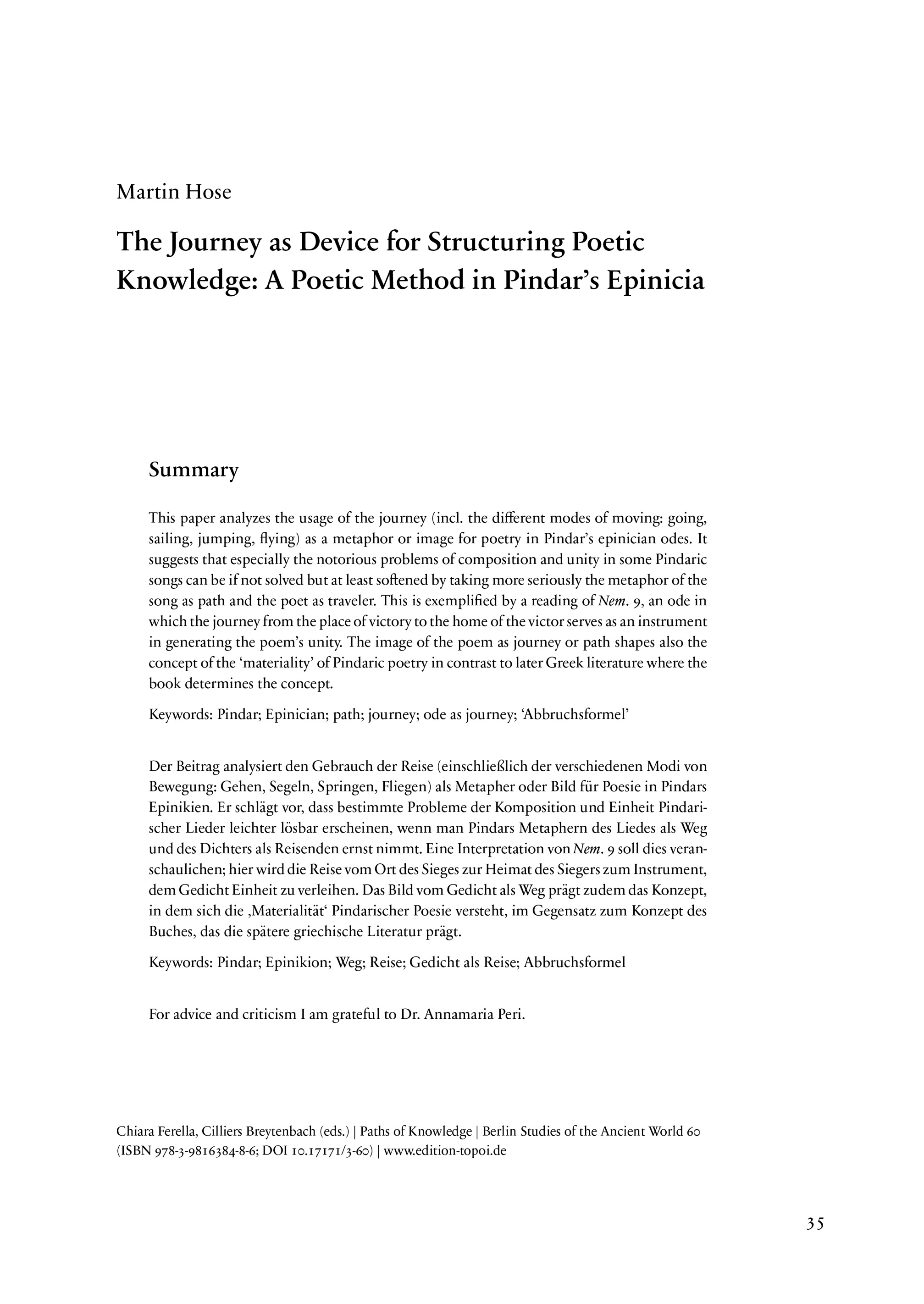The Journey as Device for Structuring Poetic Knowledge: A Poetic Method in Pindar's Epinicia
This paper analyzes the usage of the journey (incl. the different modes of moving: going, sailing, jumping, flying) as a metaphor or image for poetry in Pindar’s epinician odes. It suggests that especially the notorious problems of composition and unity in some Pindaric songs can be if not solved but at least softened by taking more seriously the metaphor of the song as path and the poet as traveler. This is exemplified by a reading of Nem. 9, an ode in which the journey from the place of victory to the home of the victor serves as an instrument in generating the poem’s unity. The image of the poem as journey or path shapes also the concept of the ‘materiality’ of Pindaric poetry in contrast to later Greek literature where the book determines the concept.
Der Beitrag analysiert den Gebrauch der Reise (einschließlich der verschiedenen Modi von Bewegung: Gehen, Segeln, Springen, Fliegen) als Metapher oder Bild für Poesie in Pindars Epinikien. Er schlägt vor, dass bestimmte Probleme der Komposition und Einheit Pindarischer Lieder leichter lösbar erscheinen, wenn man Pindars Metaphern des Liedes als Weg und des Dichters als Reisenden ernst nimmt. Eine Interpretation von Nem. 9 soll dies veranschaulichen; hier wird die Reise vom Ort des Sieges zur Heimat des Siegers zum Instrument, dem Gedicht Einheit zu verleihen. Das Bild vom Gedicht als Weg prägt zudem das Konzept, in dem sich die ‚Materialität‘ Pindarischer Poesie versteht, im Gegensatz zum Konzept des Buches, das die spätere griechische Literatur prägt.

